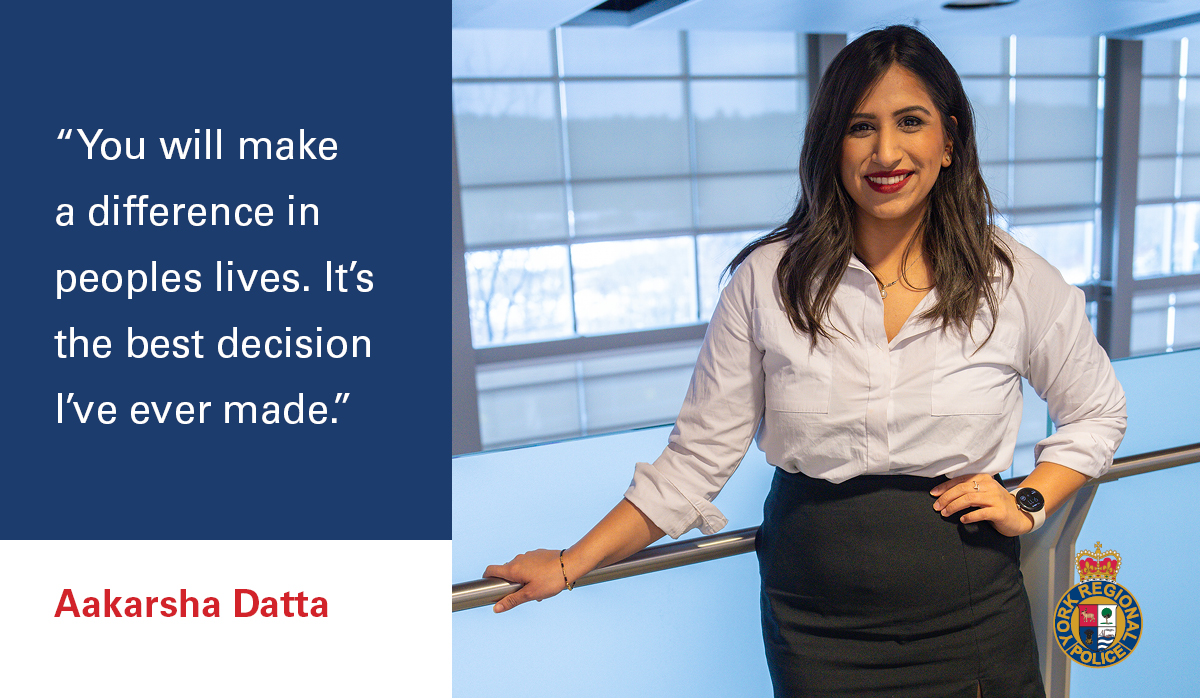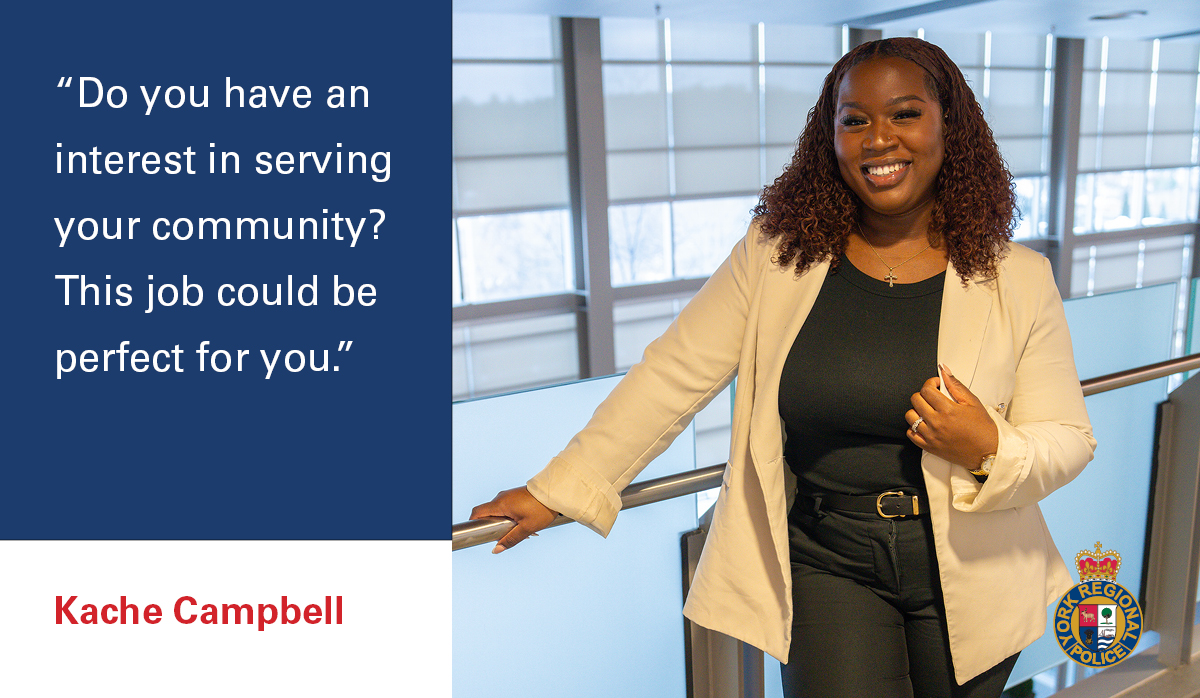Emergency? Call 9-1-1
Non-Emergency? Call 1 (866) 876-5423
- Request a Paid Duty
- Find Crime in my Area
- Find My Local Police District
- Help Solve a Murder
- Report a Crime Online
- Get a Police Record Check
- Get Crime Prevention Tips
- Learn about YRP's Units/ Sections
- Register my Bike
- Submit a Complaint Against a Member
- Submit a Compliment
- View Current Motor Vehicle Collisions
- Work for YRP
- Volunteer with YRP
York Regional Police communicators are the bridge between the public and emergency services, answering 9-1-1 calls and providing emergent and non-emergent support to our community.
They also generate and prioritize calls for service, directing police to the scenes of emergency situations and providing our officers with direction for call response.
This is a fast-paced, dynamic role that requires excellent interpersonal skills, multitasking and the capacity to adapt to continuously changing circumstances.
Learn more about what it takes to be a communicator from two York Regional Police members currently in the role.
Aakarsha Datta

Needing a change from her previous role as a social worker, Aakarsha Datta joined York Regional Police as a communicator two years ago, not knowing what to expect.
“I googled jobs in policing and this is the first role that came up,” Aakarsha said. “Coming here was a huge leap of faith. I had no idea what I was walking into.”
And now: “I never have a frown on my face about the 12 hour days. It’s always something I look forward to.”
Aakarsha continued, “You make a difference, being able to de-escalate situations and give callers the help they need until first responders arrive. Some people have literally cried on the phone and said thank you for listening.”
According to Aakarsha, there is a lot that goes into every call, as she is responsible for both walking the caller through the situation and gathering critical information for emergency responders.
“There is a ton of multi-tasking that’s going on. Your listening skills need to be excellent. And you need to be able to adapt to every situation,” Aakarsha said. “You may need a soft, compassionate tone of voice to calm someone in crisis. But, you have a lot of important questions you need answered by the caller, and sometimes, this requires switching to a more authoritative tone to keep them focused. It’s a balance.”
In addition to being adaptable, Aakarsha believes managing stress is paramount to professional and personal success.
When a difficult call has had an impact on Aakarsha, she relies on her colleagues for support: “It’s important that you have a good group of friends that you can confide in. If you’re going through something they understand. Not one day have I felt like I couldn’t talk to a colleague or my supervisor.”
She also notes that YRP has impactful wellness supports, including check-ins with mental health clinicians and a member-led wellness network.
During her short time at YRP, Aakarsha has also become involved in various member-driven initiatives across the organization, including as the co-chair of the South Asian Internal Support Network, one of many groups in the organization that provides support for those with shared experiences, puts together events and gives back to the community.
While Aakarsha hasn’t been with YRP long, working as a communicator has already made an indelible impact on her life.
She says to anyone considering the role, “You will make a difference in peoples lives. People ask me how I do it. I couldn’t imagine a life not doing it. It’s the best decision I’ve ever made.”
Kache Campbell

Kache Campbell comes from a family of law enforcement professionals.
“I guess I’ve always had an interest in this kind of work,” she said. “The biggest thing that drew me in was being able to put myself on the front lines. We aren’t out there with the public, but we are the first, first responders that people talk to in a crisis.”
Kache began her career as a communicator in 2021.
“I used to work for a school board, supporting children with mental health needs,” she said. “Those skills have been transferrable when dealing with people in crisis on the phone, particularly de-escalation techniques.”
It is incredibly rewarding, according to Kache, to assist people on what might be the worst day of their lives.
She said, “To be able to help in those situations, it feels like you’re truly making a difference.”
The diversity of calls is another aspect of the role that drives Kache: “No two days are ever the same. No two calls are ever the same.”
Kache continued, “Some callers have mental health concerns. Some callers have hearing loss. Some are very young. There can be language barriers. We get calls from people who have experience with emergency services, while other callers require you to carefully explain every step of the process. It really varies.”
Varying tone, cadence, language and the general approach to calls is something that comes naturally after a while, according to Kache.
The role of communicator consists of two separate duties, call taking and dispatching. Communicators must first serve exclusively as call takers, answering 9-1-1 calls and gathering information from callers. Eventually, communicators can begin dispatching, directing emergency services to attend calls and ensuring resources are properly allocated.
“Usually when you come in, your supervisor will tell you what you’re doing (call taking or dispatching), and that’s your role for the shift,” Kache said.
While the subject matter of a call can sometimes be difficult, Kache takes comfort in knowing she is doing everything in her power to help: “I’ve fulfilled my role. I’ve connected with the caller on a human level, reassured them. Now the officers or other emergency personnel on-scene can take over.”
Kache advises anyone interested in the role to do their research about everything it entails and to go into it with an open mind: “Do you have an interest in serving your community? If so, that’s what this job is. It could be perfect for you.”











